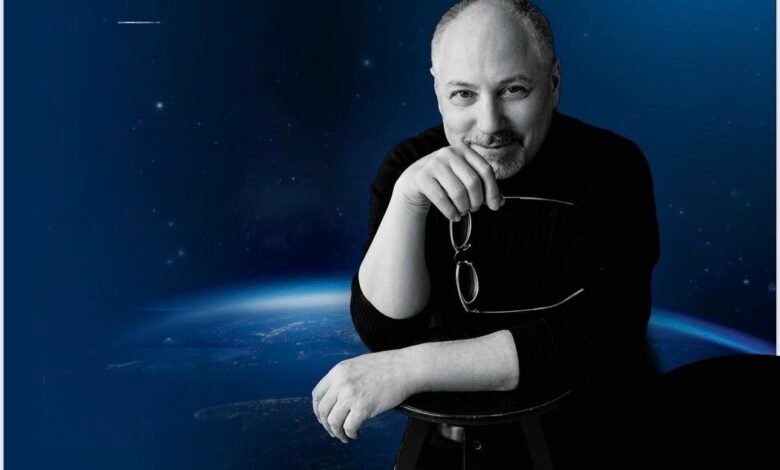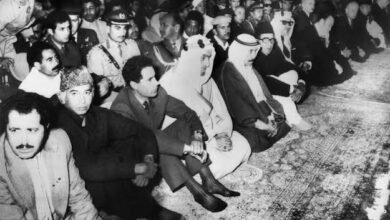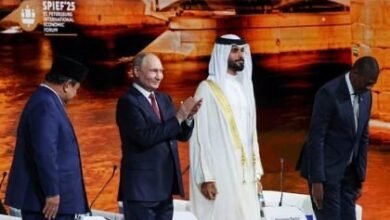
By Nancy Katts , Special Correspondent
Moscow, Russia — A name deeply embedded in the fabric of Russia’s contemporary musical and cultural landscape, Igor Evard is a composer, screenwriter, film director, academic, journalist, and cultural visionary whose multifaceted contributions continue to shape the present and future of music in Russia and beyond.
Born in Vilnius in 1963, Igor Evard’s journey defies conventional narratives. Trained initially as an engineer, he graduated from the Leningrad Mining Institute in 1985 and worked in mines before turning his focus toward the arts. His early years were marked by an adventurous spirit as he also served as a mountain sports instructor. However, it was music that ultimately became his life’s calling.
In 1992, Evard graduated from the Ryazan branch of the Moscow State Institute of Culture as an orchestra conductor and founded an ensemble, which he led with artistic passion. He also taught guitar, sowing seeds of musical appreciation among young learners. By the early 1990s, he had become a respected music journalist, radio presenter, and music editor for STRC Smolensk, and in 1994, joined the Russian Union of Journalists.
Evard’s academic prowess is equally formidable. He earned a Ph.D. in Philosophy in 2000, defending a dissertation titled “Contemporary Russian Musical Culture: Social and Philosophical Analysis.” He went on to teach at the Moscow University for the Humanities, creating and lecturing on the aesthetics curriculum, while also serving as Associate Professor in the Department of Philosophy. He later headed the university’s School of Creativity and became a corresponding member of the Russian Academy of Natural Sciences.
A laureate of several composer competitions, Evard’s musical education was shaped under the mentorship of Efrem Podgaits, a People’s Artist of the Russian Federation. His body of work includes symphonic music, chamber music, and vocal-choral compositions set to the words of renowned poets such as Lermontov, Lorca, Akhmatova, Rimbaud, and others. Evard has also boldly ventured into the genre of ‘classical crossover,’ blending classical idioms with contemporary sensibilities.
In 2003, he founded the All-Russian music and information newspaper “Playing from the beginning. Da capo al fine,” where he remains editor-in-chief. A decade later, he established the International competition for composers “Composer of the XXI Century”, drawing participation from across the globe. The competition, with support from renowned musical figures and institutions, represents a platform for promoting modern academic music.
As a film director and screenwriter, Evard’s short film Travila and multiple music videos set to his own compositions have garnered international acclaim, winning 26 gold awards at various global film festivals. In 2020, he released a visually and emotionally compelling music video Rainbow Bridge, directed by Irina Mironova, as part of his debut English-language EP in the classical crossover genre.
His most recent and ambitious project, “Earth Revival,” premiered in 2023 at the Moscow International Performing Arts Centre, with the Moscow State Symphony Orchestra under the baton of conductor N. Khondzinsky. In 2024, this monumental work was released globally on all major music platforms, further solidifying Evard’s status as a leading voice in modern classical music.
Throughout his career, Igor Evard has received numerous honors: he is a laureate of the “Voices of Russia” music competition, a Knight of the Order of M. Balakirev, an Honorary Citizen of Russia, and an Honored Worker of the Moscow Musical Society. He continues to serve on juries of major musical competitions and remains the President of the “Composer XXI” competition.
Beyond his artistic output, Igor Evard’s enduring legacy lies in his commitment to nurturing young talent, expanding musical dialogue, and bringing together tradition with innovation. His journey from the mines of Leningrad to the grand concert halls of Moscow reflects not only the evolution of a gifted composer but the transformation of Russian music in the 21st century.



